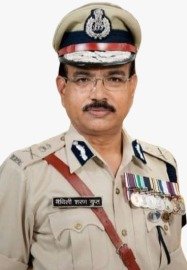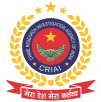Who finances Crime Research Investigation Agency of India work?
The overwhelming majority of our income comes from individuals the world over.These personal and unaffiliated donations allow Crime Research Investigation Agency of India (CRIAI) to maintain full independence from any and all governments, political ideologies, economic interests or religions.
We neither seek nor accept any funds for human rights research from governments or political parties and we accept support only from businesses that have been carefully vetted. By way of ethical fundraising leading to donations from individuals, we are able to stand firm and unwavering in our defence of universal and indivisible human rights.
Crime Research Investigation Agency of India (CRIAI) movement is made up of a network of national sections and the National & International Secretariat.
Pay at Crime Research Investigation Agency of India (CRIAI)
Our pay philosophy
We are acutely aware of our reliance on members funding and of the need to deliver value for money and genuine human rights impact on the ground. We offer attractive and competitive terms and conditions to all our staff, in order to ensure we can attract and retain the best human rights expertise in law, research, activism and campaigning, communications and fundraising.We recognize that we are able to attract staff at a discount to market rates for similar roles in other sectors. When setting levels of pay, particularly for the senior roles, this level of discount is taken into account.
Our approach to pay reflects the multiple countries in which we employ our staff and the values-based culture of the organization overall.
How pay is governed
The National Board, whose members are directly elected by the International Council Meeting, is responsible through its Remuneration Committee for ensuring an objective approach to the management of pay and benefits that is free from any bias or potential for actual or perceived conflict of interest. The Remuneration Committee decides upon the salaries of the Senior Leadership Team.The Committee comprises the Board Chair, two Board members and one independent expert. It meets at least twice per year Crime Research Investigation Agency of India (CRIAI) Works to ensure:
• Reward packages are affordable to the organization
• Our pay and approach to pay is non-discriminatory
• All roles are benchmarked using a job evaluation system to ensure equity and transparency
• We do not make any additional salary payments by way of bonus or long-term incentive schemes
• All of our salaries are taxed in accordance with the relevant local regulations
• We benchmark benefits such as pension, or in certain jurisdictions medical cover, to ensure they are in line with recognized practice and equitable with the benefits offered
• A performance management system ensures there is a link between pay increases and a standard of performance being met. To be eligible for an increase individuals will need to have achieved a rating that, at least, meets performance expectations with a higher level of increase being awarded to individuals who exceeds performance expectations in the review
• We review pay levels on an annual basis with any increases subject to a test of a) affordability b) performance and c) the market
• We report annually on the ratio of pay both from our 1) highest and the median India-based salaries; and 2) the highest to lowest India based salaries
• We report annually on the total of the five highest salaries paid to members of the National Secretariat wherever they are based in the India, in addition to showing the breakdown in bands of all higher paid staff salaries (paid above 35,000) as presented in the CRIAI FOUNDATION audited annual accounts in compliance with the India Statement of Recommended Practice (SORP)
• We benchmark roles at the 50th percentile against relevant comparator charity sector organizations with a broad-banded range of -15% and +15%, where the top of this range would be the target salary for a high performing individual
STRUCTURE AND PEOPLE
The National Secretariat is overseen by the National Board and is responsible for:• Conducting research and reporting Ensuring Crime Research Investigation Agency of India (CRIAI)
• speaks with one voice globally about the whole range of human rights themes and situations and their impact on people and communities
• Providing expert legal analysis of our research data, forming the basis of expert lobbying of international government organisations
• Providing endorsed materials to sections for campaigning
• Monitoring AI's financial health
• Supporting and maintaining systems required to ensure that CRIAI is ready to serve 24 hours a day
Sections, Groups, Individuals and Networks
Sections
Sections carry out AI work at a national and/or regional level. AI has sections set up in more than All India.They are responsible for:
• Lobbying local government
• Campaigning/fundraising/communications within their country/region
• Developing strategies for media work
• Recruiting new supporters for the organisation
• Conducting own research projects focusing on human rights abuses in their own country – this must be developed from research work carried out by and is agreed by the National Board.
Groups
• Many of our members are a part of a group based in their community, whether this i Lobbying local government• Campaigning/fundraising/communications within their country/region
• Developing strategies for media work
• Recruiting new supporters for the organisation
• Conducting own research projects focusing on human rights abuses in their own country – this must be developed from research work carried out by and is agreed by the National Board.
Individuals
Members: individuals who pay a membership feeSupporters: individuals who make a donation
Activists: individuals who take part in actions such as letter writing, signing petitions, demonstrating
Networks
Networks are made up of members who share an interest, identity or expertise which gives them a particular role to play in taking up human rights issues.The largest AI network is the worldwide urgent action network, whose members take rapid action at short notice to protect people whose life or physical security is at risk.
AI groups are official units of the organisation, and some of its most important work is done at group level.
Groups carry out activities such as campaigning, education, engaging local media contacts, fundraising, and recruitment of members & activists. Groups also take part in AI decision-making – contributing to national and international consultations, attending Annual General Meetings, and participating in section working groups.




